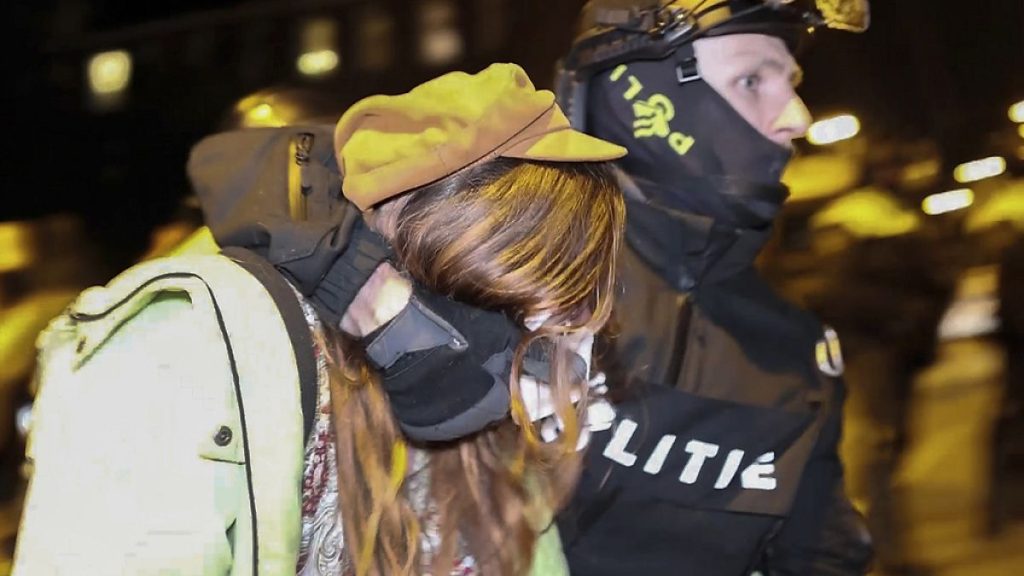Students and faculty members from universities in the Netherlands gathered to protest Israel’s military operations in the Gaza Strip. In Amsterdam, demonstrators entered the University of Amsterdam building, set up tents, and built barricades using office furniture. The university reported trespassing and vandalism, leading to the deployment of riot police to break up the campus protest. Similar protests took place at universities in Groningen, Nijmegen, Utrecht, Wageningen, and Leiden. These protests are part of a larger trend of student activism against Israeli military actions, with similar actions occurring in universities in the United States.
The conflict in Gaza began after Palestinian militant groups launched a surprise attack on southern Israel, killing 1,200 people and taking around 250 hostages. In response, Israel initiated a military operation that has resulted in the deaths of over 34,700 Palestinians, according to local health officials. The ongoing violence has caused extensive devastation in the Gaza Strip, with many civilians suffering the consequences of the conflict. The protests in Dutch universities reflect growing global concern over the situation in Gaza and the need for a peaceful resolution to the conflict.
The mayor of Amsterdam, along with the police chief and public prosecutor, decided to intervene in the protests at the University of Amsterdam by deploying riot police. This decision was made in response to reports of trespassing and vandalism on campus. While it is unclear how many protesters were arrested during the police intervention, the actions taken by authorities highlight the challenges of balancing freedom of expression with maintaining public order. The use of force to disperse protesters raises questions about the limits of peaceful protest and the role of authorities in managing civil unrest.
The protests at Dutch universities are part of a broader movement of student activism that has emerged in response to conflicts in Gaza and other regions. Similar protests have taken place in universities across Europe and the United States, with students demanding accountability and justice for victims of violence. The solidarity shown by students and faculty members in the Netherlands reflects a growing awareness of global issues and a willingness to take action to address them. These protests serve as a reminder of the power of collective action in raising awareness and advocating for change.
The situation in Gaza remains volatile, with ongoing military operations causing further suffering to civilians in the region. The protests in Dutch universities signal a growing call for an end to the violence and a peaceful resolution to the conflict. As students and faculty members continue to raise their voices against Israeli military actions, the international community is urged to take action to address the root causes of the conflict and work towards a lasting peace in the region. The solidarity shown by protesters in the Netherlands and around the world highlights the importance of standing up for human rights and justice in the face of violence and oppression.
In conclusion, the protests at Dutch universities reflect a growing global movement of student activism against Israeli military operations in the Gaza Strip. The deployment of riot police to break up campus protests raises questions about the limits of peaceful protest and the role of authorities in managing civil unrest. The ongoing conflict in Gaza has resulted in extensive devastation and loss of life, prompting calls for a peaceful resolution to the violence. As students and faculty members continue to raise their voices against the conflict, the international community is urged to take action to address the root causes of the violence and work towards a lasting peace in the region. The solidarity shown by protesters in the Netherlands and around the world demonstrates the power of collective action in advocating for justice and human rights.


